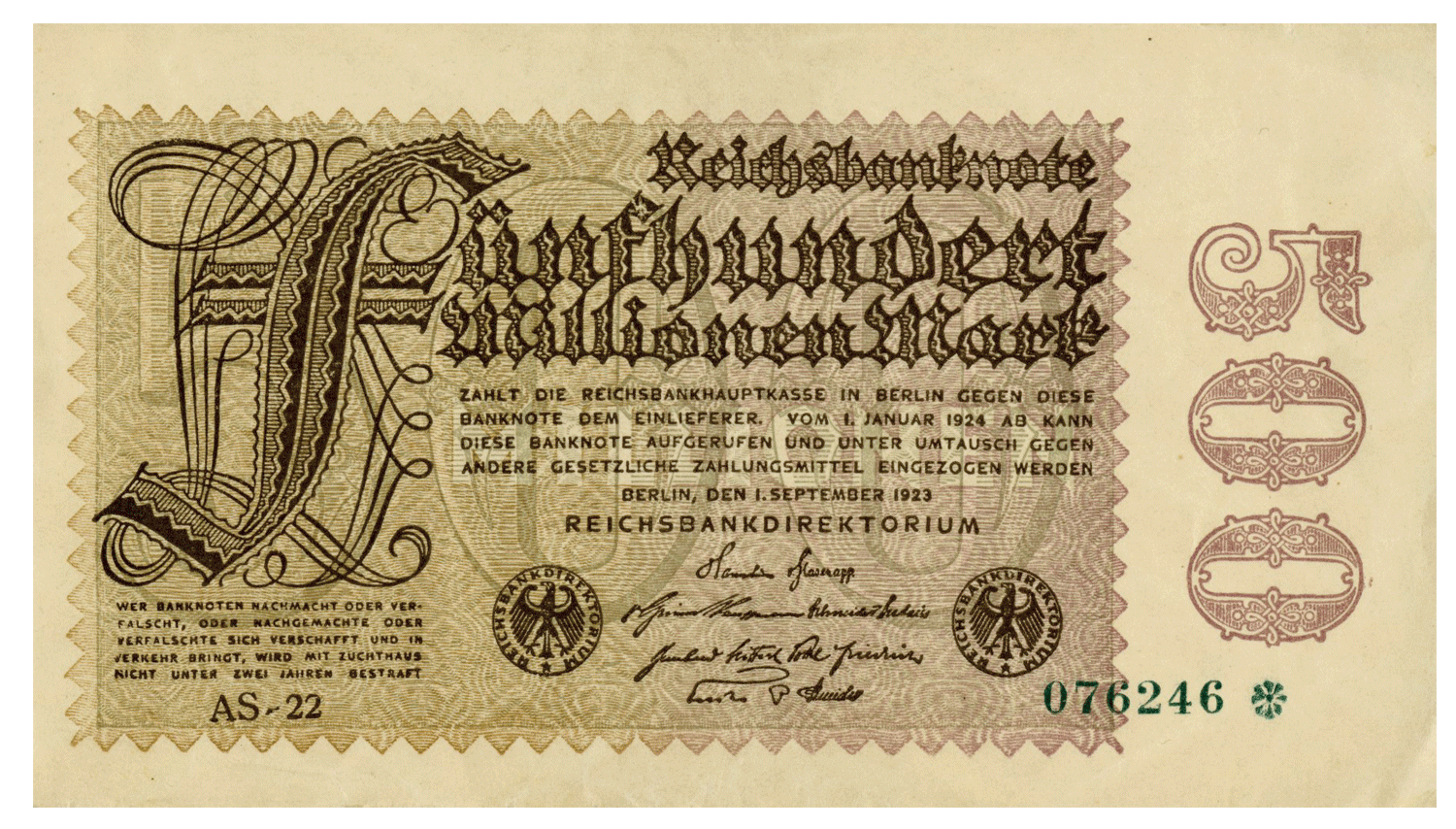
Look: Old Money

Money Talks
A nation’s currency reflects its society, not just its economics, and design changes can signal social progress.
In 2020, for instance, the United States Mint plans to reveal designs for the first bills in more than a century to show a woman and the first ever to show an African American. Harriet Tubman, once a slave, will replace Andrew Jackson, the slave-owning seventh U.S. president, on the front of the $20 bill. Redesigned $10 and $5 notes also will incorporate women.
Other currency updates clearly broadcast awful times. Take the 500 million mark Reichsbanknote from the CU Heritage Center’s collections (pictured above). Issued by the Weimar Republic in 1923, it reflected runaway inflation in post-World War I Germany, which aided the rise of Adolf Hitler.
The bill, which possibly belonged to CU President George Norlin, wouldn’t have bought much: By November 1923 a loaf of bread in Germany cost 200 billion marks. So there was a 100 trillion mark note, too.
The Heritage Center’s small but varied currency collection also includes an American Revolution-era $30 bill and a $50 Confederate States of America bill (both pictured). They may be viewed in person by appointment with the curator.
Photos courtesy CU Heritage Center

